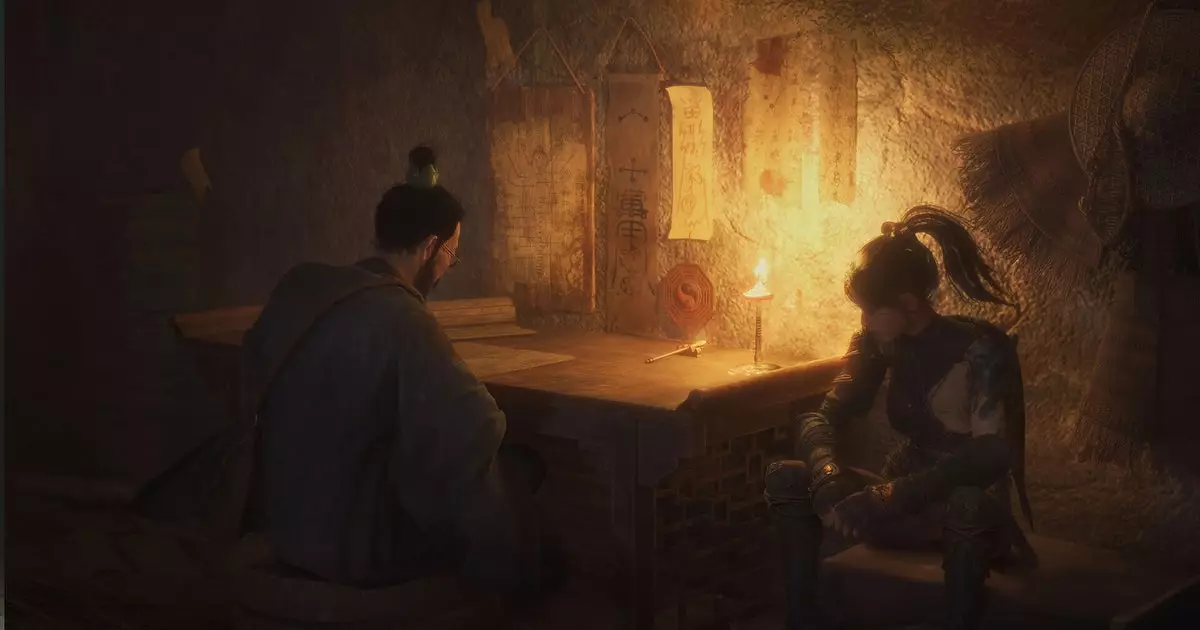In recent weeks, Wuchang: Fallen Feathers, a game known for its demanding and atmospheric soulslike combat, has undergone significant changes through a new patch. These modifications, ostensibly intended to balance the game, have drastically altered the core challenge that loyal fans have come to cherish. Instead of facing formidable foes that test their skill and patience, players have encountered an unsettling shift where many of the game’s bosses become unkillable or are reduced to exhausted states upon defeat. This change not only diminishes the sense of triumph but also subtly erodes the narrative weight the game originally aimed to deliver.
What is particularly troubling about this shift is its apparent motivation. Reports suggest that Chinese players or community pressures influenced the developers to soften the difficulty, perhaps to cater to a wider audience or avoid confrontational criticism. Whatever the motive, this intervention compromises the integrity of Wuchang as a soulslike — a genre built on relentless challenge and visceral reward. When a game fundamentally changes how enemies respond or dismisses their death altogether, it risks alienating core players who seek authenticity and consistency in difficulty.
The Ethical Dilemma of Altering Design for External Influences
The controversy surrounding the patch exposes a broader ethical dilemma within the gaming industry: Should developers modify their creations based on external pressures at the expense of artistic vision and gameplay integrity? Many fans argue that such patches betray the essence of soulslike games, which thrive on punishing but fair combat. When enemies become exhausted rather than defeated, or story progression relies on superficial interactions rather than meaningful combat, the player’s experience is cheapened.
Furthermore, these patch-induced changes reflect a troubling trend where publishers or developers may prioritize appeasing certain audiences over maintaining the game’s initial design philosophy. It raises questions about artistic control, cultural influences, and the commodification of challenge itself. If difficulty becomes a negotiable aspect dictated by external interests, then the very foundation of the soulslike genre — which is built upon mastery and perseverance — risks dilution into a simplified, less compelling experience.
The Role of Modding: A Defiant Stand for Authenticity
In response to these unsettling developments, the gaming community has shown resilience by creating mods that restore the original experience. AVK95’s “Rollback censorship patch” exemplifies the community’s determination to preserve the challenging spirit of Wuchang. By rolling back to version 1.4, players can regain the brutal boss fights, the precise combat mechanics, and the immersive storytelling that were compromised by Patch 1.5.
This act of modding is more than a technical workaround; it is a defiant stance against censorship and a reminder that community voices matter. It underscores the importance of respecting a game’s design and the risks when developers prioritize external pressures over internal integrity. While the process of installing such mods can be cumbersome, especially given platform limitations like Steam’s inflexible update system, their existence affirms that dedicated players refuse to accept a watered-down version of their beloved titles.
Furthermore, the modding scene highlights a gap in modern game development: the lack of built-in options to easily revert updates or customize difficulty. Platforms like GOG.com offer reserved beta versions, but Steam remains inflexible, compelling players to resort to manual, often complicated, solutions. This predicament calls for industry-wide reflection on how updates are managed and how to empower players to maintain control over their gaming experience.
Looking Ahead: Preserving Challenge in Evolving Games
The Wuchang situation serves as a cautionary tale that underscores the necessity for developers to prioritize player agency and artistic integrity. Difficulty is not merely a gameplay feature but a fundamental aspect of how a game communicates its themes and engages its audience. When patches undermine this, players should have accessible tools to restore their preferred experience rather than being forced into acceptance or arduous manual reinstalls.
Ultimately, true challenge is what elevates soulslike games from mere entertainment to profound, memorable experiences. Modders stepping in to preserve this challenge exemplify the enduring spirit of gaming communities, reminding developers that their creations are most vibrant when they respect the original vision and the players’ passionate commitment. If the industry is to foster innovative yet authentic experiences, it must listen more carefully to its most dedicated audience and respect the delicate balance between balancing and diluting difficulty. Only then can games like Wuchang fulfill their potential as genuine testaments to skill, perseverance, and storytelling.

